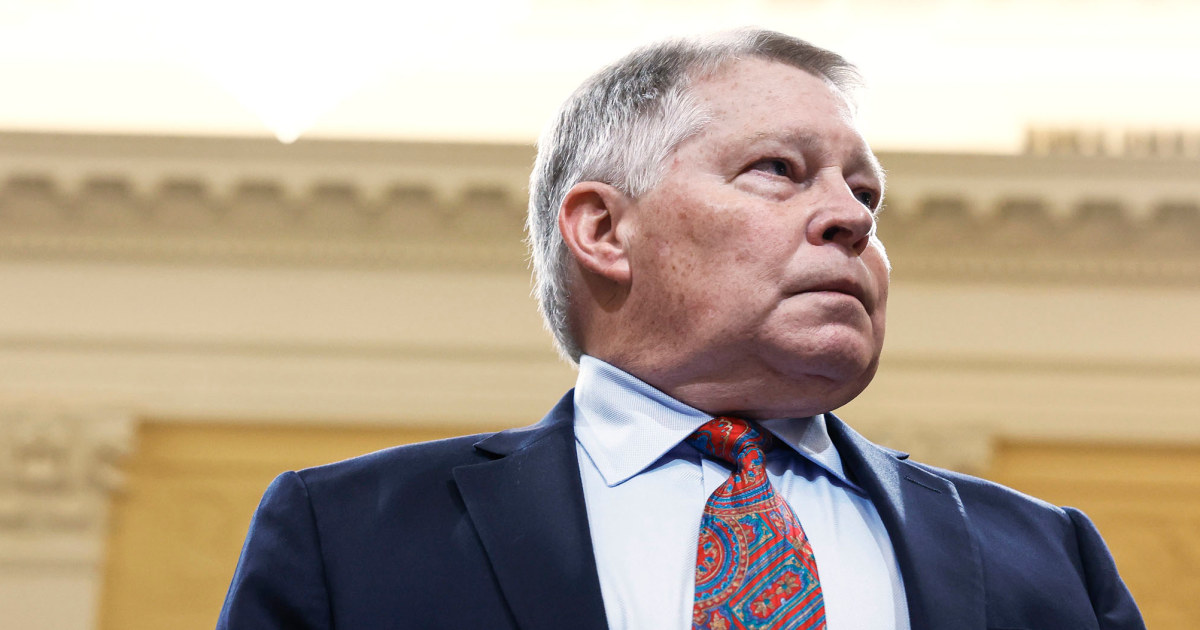The Judge explained how Donald Trump is disqualified from retaking the White House under the 14th Amendment, why the former president is not immune from prosecution, and what a second Trump term would mean for the country (spoiler alert: it wouldn't be good).
Jordan Rubin: Judge, you’ve been thinking a lot lately about this 14th Amendment issue. Why is it so important to democracy, in your view?
J. Michael Luttig: Section 3 of the 14th Amendment ... disqualifies any person who, having taken an oath to support the Constitution of the United States, thereafter engages in an insurrection or rebellion against the Constitution of the United States, disqualifying that person from holding high public office in the future, including the presidency.
So it’s more than just a proscription and disqualification for anti-democratic conduct by an individual, but, in this circumstance, it is that and it would apply in this instance to disqualify the former president from holding the presidency again, because of his effort, plan and attempt to overturn the 2020 presidential election, knowing that he had lost that election to then-candidate Joe Biden.
This is very, very important: Section 3 disqualifies one who has engaged in insurrection or rebellion against the Constitution of the United States, not an insurrection or rebellion against the United States, or the authority of the United States.
JR: What do you think of criticism that suggests it's wrong to keep Trump off the ballot using this process, as opposed to “letting the voters decide,” as a critic would say?
JML: I have seen that criticism, if you will, of applying Section 3 to the former president. And it concerned me because it’s a legitimate question to be asked. But I’ve responded publicly to that concern by explaining that the disqualification that’s provided for under Section 3 is not itself anti-democratic at all.
Rather, it’s the conduct that can result in disqualification under the 14th Amendment that the Constitution says is anti-democratic. So there’s no question whatsoever that disqualification of an individual who satisfies the conditions of disqualification in Section 3 is not anti-democratic.

 www.msnbc.com
www.msnbc.com
Jordan Rubin: Judge, you’ve been thinking a lot lately about this 14th Amendment issue. Why is it so important to democracy, in your view?
J. Michael Luttig: Section 3 of the 14th Amendment ... disqualifies any person who, having taken an oath to support the Constitution of the United States, thereafter engages in an insurrection or rebellion against the Constitution of the United States, disqualifying that person from holding high public office in the future, including the presidency.
So it’s more than just a proscription and disqualification for anti-democratic conduct by an individual, but, in this circumstance, it is that and it would apply in this instance to disqualify the former president from holding the presidency again, because of his effort, plan and attempt to overturn the 2020 presidential election, knowing that he had lost that election to then-candidate Joe Biden.
This is very, very important: Section 3 disqualifies one who has engaged in insurrection or rebellion against the Constitution of the United States, not an insurrection or rebellion against the United States, or the authority of the United States.
JR: What do you think of criticism that suggests it's wrong to keep Trump off the ballot using this process, as opposed to “letting the voters decide,” as a critic would say?
JML: I have seen that criticism, if you will, of applying Section 3 to the former president. And it concerned me because it’s a legitimate question to be asked. But I’ve responded publicly to that concern by explaining that the disqualification that’s provided for under Section 3 is not itself anti-democratic at all.
Rather, it’s the conduct that can result in disqualification under the 14th Amendment that the Constitution says is anti-democratic. So there’s no question whatsoever that disqualification of an individual who satisfies the conditions of disqualification in Section 3 is not anti-democratic.

Judge Luttig explains why Donald Trump is disqualified from the presidency
The conservative retired jurist broke down the 14th Amendment, Trump's immunity argument, and what a second Trump term would mean.

